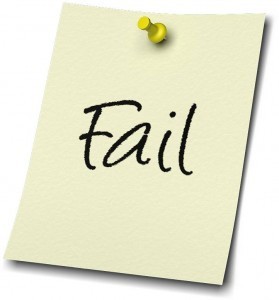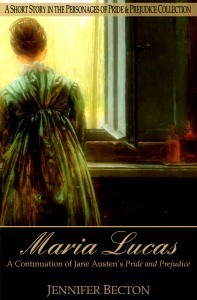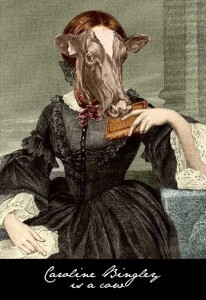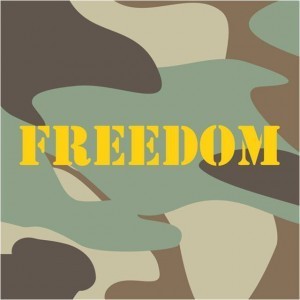Jennifer Becton's Blog, page 58
March 26, 2011
Is Quality Important?
 I don't have the link, but yesterday, I read a blog post about whether or not quality of writing was important to readers. If you want to read it, go to Kindle Boards and look around. There was a discussion of it there. I'm too lazy. Anyway, the post seemed to indicate two things:
I don't have the link, but yesterday, I read a blog post about whether or not quality of writing was important to readers. If you want to read it, go to Kindle Boards and look around. There was a discussion of it there. I'm too lazy. Anyway, the post seemed to indicate two things:
If a book was rejected by a publisher, it was definitely of inferior quality.
Readers, in general, will overlook poor writing if the price is right.
I reject both of these premises.
(Note: I'm thinking of quality as proofreading, cover art, formatting, and general story structure. Now, as far as personal preference for writing style, characters, and plot, that stuff is too subjective. People are going to have different opinions, and not liking a book does not necessarily mean it was poorly written. It just means I didn't like it.)
First, having worked for publishers for more than ten years, I can say that not all manuscripts are rejected for quality reasons. They are rejected because the market for the product is too small, the editor has already filled their quota for that genre, or they just did not like it. Yes, I admit, many are rejected because they are not well written, but not all.
Second, I think the discussion of whether or not quality is important to a reader is irrelevant. Quality should be important to writers, especially those who choose to self-publish. The goal should not be to offer lower quality for cheaper prices; it should be to offer the same or better quality for lower prices. Besides, do you really want to put work out there that isn't your best? It is a reflection of you.
March 25, 2011
What's the Bigger Risk?
Well, I blogged about Eisler, so I had to blog about Hocking. She took a $2-million 4-book deal with St. Martin's, the publisher Eisler turned down. How's that for coincidence?
The net is in an uproar. Did she do the right thing, yada, yada? Here's her explanation. Her main reason seems to be diversification for career stability. Hey, makes sense to me, but the funniest part is that she makes it clear that taking the deal was the RISK. Two years ago, self-pubbing was the risk. Amazing how things change.
March 22, 2011
NYT Bestseller Eisler Goes Indie
Unless you live under a rock–or just don't follow the publishing biz–you have heard that Barry Eisler turned down a $500,000 contract with Saint Martin's Press to self-publish. It sounds insane, but he will make more money self-pubbing his novels than he would by taking that outrageous deal.
But more important to me than the money is the fact that Eisler is one of the first big, big names to make the switch. Self-pubbing is the way of the future, and Eisler and Konrath discuss it here. This post is long, 13,000 words, but you can download it in ebook form and read at your leisure. If you are at all interested in publishing, I highly suggest that you do so. It provides great insight into what traditional publishers are thinking at this phase of the game.
March 21, 2011
What If…?
While I'm busy working away on my next independently published novel, I started thinking about how happy I have been with the way my writing journey has gone. Then, I started thinking that I can actually be a bit helpful to writers who still would like to attempt to be traditionally published, especially to those who want to write an Austen sequel.
Here's what I discovered may help get your foot in the door:
Write a good novel. Make it clean and submit it to the publisher following their directions precisely.
Write in the Pride and Prejudice universe. According to the publisher, P&P sequels sell better than those based on any other Austen novel.
Write a Darcy/Elizabeth-focused novel. Based on what the publisher told me, this is one of the main criteria they look for. According to their findings, D/E stories sell the best.
Write a what-if variation. Those seem to be in vogue right now.
Be creative with setting and time period. A western P&P came out this year.
Give it a supernatural twist. Also in vogue.
Stay true to the characters. While you are changing the details of the plot a bit, don't change too much about the characters. People really want to see the characters they already know and love.
Throw in some sex. One of the best-selling sequels of all time was extremely focused on the subject. Sex sells, right?
Use Darcy or Pemberley in the title. This is said to attract the most attention.
So if you are interested in pursuing this route, maybe those tips will maximize your chances at getting a contract. Let me know how it works! 
March 14, 2011
Quick Updates
For the next two weeks, I'll be focusing on getting through the second draft of Caroline Bingley, so my blogging may be a bit slim. Priorities.
I thought I'd give a few book sales updates for those of you who are interested in self-pubbing. I am super excited by what is possible in the indie world. I love seeing the numbers of Hocking and Konrath and others. Mine are nowhere near theirs, but I'm thrilled with my little niche on the mid-list. Not bragging. Just sharing.
Charlotte Collins has surpassed 2,700 total sales and is on track to pass 3,000 before the end of the month. I am thankful to you all for making this happen!
"Maria Lucas" has been live for 1 week. With very few marketing efforts on my part, it has sold 27 copies. Not setting the world on fire, but respectable numbers nonetheless.
So that's all the news that's fit to print. Back to writing!
March 9, 2011
Selling Short Stories
 I felt a little weird about offering "Maria Lucas" (formerly "Maria's Romance") for sale on Amazon.com. I had planned to give it away, but as an indie, I cannot offer it for free on Amazon; it's the company's policy. The lowest price I was allowed to ask was $0.99. With some people selling full-length novels at that price, I felt bad for having to ask so much for a short story.
I felt a little weird about offering "Maria Lucas" (formerly "Maria's Romance") for sale on Amazon.com. I had planned to give it away, but as an indie, I cannot offer it for free on Amazon; it's the company's policy. The lowest price I was allowed to ask was $0.99. With some people selling full-length novels at that price, I felt bad for having to ask so much for a short story.
I was talking about this with my husband, who–I must warn you–is an engineer. Things happen in his head involving numbers that I cannot fathom. Take for example the following conversation held during a road trip:
Me: You're quiet. What are you thinking about?
Him: I was calculating the number of RPMs the engine is doing based on our speed since the truck doesn't have a tachometer.
Me: Oh.
Him: What were you thinking about?
Me: I was thinking the trees are pretty.
Or this conversation, also on road trip:
Me: How much farther until we get there?
Him: [very long pause for calculation]
Me: Just estimate.
Him: [Pause continues.]
Me: *eye roll*
Him: 17.63 miles
Me: Seriously?
Him: That's just an estimate.
That's how he thinks. In binary.
So I asked his opinion on selling a short story for $.99. His response was interesting. It basically boiled down to this. At 5,000 words, that's about 20 pages. Let's say it takes a person 1 minute to read a page. That's 20 minutes of entertainment. That's $.05 per minute. (Ok, it's $.0495; I had to say that. See previous conversations.) So if you translate that to hourly figures, you'd be spending $2.97 an hour for entertainment.
Then, factor in the fact that the story can be reread AND it can be shared with a friend via Amazon's Kindle sharing program. But for the sake of argument, let's say you never read it again or share it. So we'd have to compare it with something fleeting, like going to a movie or concert. Something you do once. Can you get into a movie or concert for $2.97 an hour?
"Maria Lucas" has been live on Amazon for 24 hours, and a few copies have already sold (THANK YOU!), so I assume the price isn't too off-putting. It's a bit early to predict how it will go long term, but I'm cautiously optimistic.
March 8, 2011
Publishing Fear Free: Hey! Who Moved My Mid-List?
So, if you're following publishing these days, you know that things are changing rapidly due to the advent of ebooks. You've heard that fewer authors are offered traditional deals (take me for example) and that the mid-list is shrinking. Traditional publishers are only looking for the big bestsellers and passing over the more niche offerings.
You've also heard about indie publishing phenoms like Amanda Hocking and J. A. Konrath. You've heard they're making hundreds of thousands, if not millions, so you know there is money to be made if you take your writing seriously and have luck on your side.
You know that ebooks are only 20 percent of the market. Paperbacks still make up the vast majority of book sales. And you've also heard that most books still sell fewer than 100 copies, and as a result, most indies are making very little money.
You hear about the extremes, but precious little about authors who fall somewhere in the middle–between outlandish success and abject failure. You don't have to have a book in the Amazon Top 100 to be a successful author. You don't have to shoot to instant fame. You can slowly build your backlist over time, and while you are doing so, you could be selling 5-20 of each of your books per day.
So let's say you have one book and sell 20 copies per day at $2.99. That's roughly $40 per day, seven days a week. That's $14,600 per year. Can you quit your day job on that one book? Can you put in that swimming pool?
Nope. But what if you had two or three books that consistently perform that way?
I think there is a new mid-list building out there, and it's composed of indies like me. We may not be Hockings or Konraths, and we may never be, but that does not mean we cannot make a good living in the new indie mid-list.
March 7, 2011
Is Caroline Bingley a Villainess?
 In my original blog post about my new novel Caroline Bingley, I referred to the character in question as a villainess. But upon further contemplation, I don't think that's true.
In my original blog post about my new novel Caroline Bingley, I referred to the character in question as a villainess. But upon further contemplation, I don't think that's true.
Absolutely, she's an antagonist. Yeah, she's a cow.
But a villainess? I don't think so.
Both types of characters–antagonist and villain–serve to screw with the lives of the protagonist. Because an antagonist has an opposing agenda, their actions cause pain and vexation to the protagonist. They don't necessarily wish to harm them, but sometimes, just by enacting their own agenda, harm comes to our beloved hero. A villain, however, is out to destroy the main character. A villain has evil in their heart and is purposefully trying to do harm. Wickedness is part of their core. They twirl their Snidely Whiplash mustaches with glee as they work toward the destruction of the protagonist.
I know there are several P&P sequels out there that portray Caroline as a villain, but I'm not so sure that's what Jane Austen intended for her character. In fact, Caroline and Elizabeth Bennet have many similarities; they are smart, bold, and cunning. They both exercise their wit against each other in private. Only Elizabeth carries off those traits in a much more positive light. And what brings them to conflict is their mutual desire for Mr. Darcy and their mutual–but opposing–interest in the relationship between Bingley and Jane.
Elizabeth isn't out to win Mr. Darcy, but Caroline certainly is. And upon perceiving Mr. Darcy's interest in Elizabeth, Caroline ups her game, resulting in a whole lot of childish put-downs and insults. She sees what's happening, but she doesn't have the social skills and wherewithal to turn the situation in her favor. They are in conflict, and Caroline says and does some nasty things, but she does so out of her desire for Darcy, not out of her evil desire to destroy Elizabeth.
Both Caroline and Elizabeth try to work behind the scenes to either help or hinder Bingley and Jane. They both enact cunning plans, with varying degrees of success. Caroline and Darcy find a pretence for removing Mr. Bingley to London and away from Jane, and Elizabeth finds one to send Jane right back into his circle by getting her sister to Town. They both did the same thing and for the same reason: to get their way in regard to their sibling's future happiness.
So yeah, as I work on Caroline Bingley, I realize that what makes the Caroline/Elizabeth relationship so interesting–and what makes Caroline so cow-like–is that they are similar characters with opposing agendas. Elizabeth is clearly the more mature, well-rounded, worthy character, and Caroline is immature, unkind, and mean-spirited.
And I confess, I'm having a lot of fun writing her.
What does that say about me?
Don't answer that.
March 5, 2011
What Happened to "Maria's Romance"?
 No one probably noticed, but I'm in the process of taking down old copies of "Maria's Romance."
No one probably noticed, but I'm in the process of taking down old copies of "Maria's Romance."
Originally, I wrote this short story as a gift for the readers of Charlotte Collins to thank you all for taking a risk on an unknown author and to share how I envisioned Maria's story to end.
I released "Maria's Romance" in November 2010, and since then, I've been using it for marketing purposes. It's been my go-to piece for the #samplesunday hashtag on Twitter. I also have long-range goals of putting it in an ebook bundle, which will include Charlotte Collins, Caroline Bingley, "Maria's Romance," and a short story in relation to Caroline Bingley. But that's a long way off.
After reading Konrath's latest blog post, I've decided to try out his advice and use this story as a stand-alone Kindle offering. Because views of the free version of the story have stagnated on Scribd, Smashwords, and my website, I assume that everyone in my blog/Facebook/Twitter 'verse who wanted to read the story has done so already. So I'm going to see if the marketing power of Amazon can help it reach more readers, but in order to do this, I can no longer offer it for free. (Users of KDP must charge something for their books; no indie can make their book free.) Instead, I'm going to try it out at $0.99 and see what happens. If the whole thing is a flop, well, I'll just go back to the old way.
I have redone the cover, made a few alterations and corrections, and changed the title to "Maria Lucas" to better reflect my larger vision for the Personages of Pride & Prejudice Collection.
What do you think?
March 4, 2011
Contemplations on Freedom and Indie Publishing
 I don't like to talk a lot about politics. I'm one of those people who doesn't really enjoy debate mainly because I like to think about things before giving an opinion. And by the time I figure out what I think, the debate has been over for two weeks. So if you're forming a debate team, put me on research, not on the front lines.
I don't like to talk a lot about politics. I'm one of those people who doesn't really enjoy debate mainly because I like to think about things before giving an opinion. And by the time I figure out what I think, the debate has been over for two weeks. So if you're forming a debate team, put me on research, not on the front lines.
However, one thing I don't have to think about is my belief in freedom. I don't care who you are, what your race is, what religion you practice, what life experiences you've had, or what color underwear you're wearing, everyone yearns for freedom. Not everyone is as thrilled with the risks and responsibilites that come with it though.
But maximum freedom is my goal, and that is why I've come to love being an indie author. In the traditional publishing world, they take on such tasks as providing a story editor, proofer, artist, and designer, and they take on the financial risk of publishing your book. In return, you voluntarily give up some of your freedom by agreeing to make the changes they suggest and to using their cover art and marketing plan. Is that a bad thing? Not necessarily.
However, with the advent of ebooks and POD technology, writers can maximize their creative freedoms by agreeing to take on the responsibilities of a traditional publisher. You can write the exact story you want, and then you risk it all by making it available to the public. If other free individuals smell where you're steppin', then they'll buy it. They'll tell their friends about it.
I quickly realized how much I cherish my freedom to write as I choose, to select my cover art, to market as I see fit, and to be true to myself in the process. If I had taken the traditional publisher's advice, Charlotte Collins's story–the one I wanted to tell–would not have been told. If I had listened to them, I would have ended up writing something about which I had no passion, and it would not have been nearly as fun or rewarding. I would not have been as free to try to write in multiple genres, which I fully intend to do.
Aside: Just realized this should be a Fraud Friday post. Oops. On that score, I started writing "Cancellation Notice," a short story that introduces the heroine in Absolute Liability. I hope to release it free in the next few weeks.
Back at the ranch: I am so happy to have the chance to be an indie author, and I hope that others out there will take hold of their freedoms and follow their dreams too.



